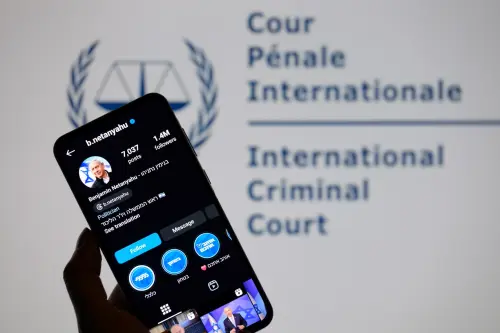[Editor’s Note: Our Brookings colleagues Marvin Kalb and Michael O’Hanlon published an oped on the role of Congress in U.S. policy toward Tehran in Politico early last week arguing that “if by fall there is no forward movement on the negotiating front with Tehran, Congress should take up the Iran issue. The vote would consider the question of whether, in the event that Iran moved irrevocably toward development of a nuclear weapon, all means should be considered by the president to prevent that outcome.” The piece sparked a number of counter-arguments, including one from Matthew Duss and Lawrence Korb of the Center for American Progress published in Politico on Friday, June 28, “The U.S. Should Tread Lightly On Iran,” contending that missteps by Washington would undercut possibilities for compromise on the nuclear issue. Iran @ Saban asked O’Hanlon and Kalb to continue the conversation on our blog, which they kindly obliged below. Watch this space for more debate on this issue, and please weigh in with your own comments and analysis at [email protected] – we look forward to continuing the discussion!]
The United States is on the road to war with Iran.
Proof is a string of presidential commitments to stop Iran from developing nuclear weapons. “All options are on the table,” President Obama has stressed, leaving little doubt that if Iran continues to enrich its uranium reserve, moving from the peaceful uses of nuclear power to its military uses, then a U.S. strike against Iran, with or without Israel, becomes a distinct possibility.
If there were any evidence that Iran is listening to these presidential warnings, and adjusting its nuclear program accordingly, the option of an American military attack on Iran would almost certainly be shelved. Probably no US official would be more relieved than Obama, who wants desperately to sheave his Mideast sword and return to “nation-building” in America. But there is no such evidence, according to the International Atomic Energy Agency.
Ah, but maybe there is, wonder such public policy analysts as Matthew Duss and Lawrence Korb of the Center for American Progress. With the recent surprise election of Hassan Rouhani, regarded as a moderate among the Iranian leadership, there may now be “renewed possibility of a diplomatic solution” to the nuclear impasse, and the “US should be as careful as possible to do no harm.” And what would do such harm? A “congressional debate over the use of force against Iran,” write Duss and Korb in a Politico op-ed.
Unfortunately, none of us has special access to the supreme leader of Iran’s secret files, or to sources close to him. Ayatollah Ali Khamenei may be the cleverest diplomat in an Iranian bazaar ever to engage in a nuclear negotiation, ready to conclude an acceptable agreement, if only Obama would advance a face-saving compromise. Maybe, but there is no evidence after years of trying and negotiating of the Ayatollah’s yearning for a deal.
If Obama had never made his original “commitment” to stop Iran from developing nuclear weapons, we would not be facing this growing crisis. But he did, and we do, and what now?
Perhaps there is lesson in our recent history. In the winter of 1966, as the US was slipping deeper into a colonial war in Southeast Asia, Senator J. William Fulbright, Chair of the Senate Foreign Relations Committee, took an important step. He opened a series of public (and private) hearings on Vietnam. He invited government officials, scholars and journalists. “Under our system,” Fulbright explained, “Congress, and especially the Senate, share responsibility with the president for making our national foreign policy.”
The Arkansas Democrat was concerned that President Johnson, another Democrat, was leading the country into a poorly understood calamity, and it was Congress’s “responsibility” to do something—in this case, to hold televised hearings that would educate the people to the deadly realities of a guerrilla war in Southeast Asia. Then, he had to rely basically on the three major networks to carry his hearings, if not ‘live’ then on their evening newscasts; and they did, more or less. The impact was tremendous. In one month, popular support for the war fell from 63% to 49%.
The war, of course, did continue, unfortunately. National life was severely disrupted, and more than 58,000 Americans died.
This lesson from history mirrors two current realities: more than ever, Congress has effectively abdicated its responsibility to help manage the nation’s foreign policy, vesting extraordinary powers in the presidency to start, run and stop wars; and the danger of a war with Iran looms on the not too distant horizon. Those are the facts facing any analyst.
Minimally, we believe, Congress ought to get back into the business of representing the public on matters of war and peace, and launch a serious conversation with the nation about US relations with Iran, starting with the post World War II history of the two countries and then running up to today’s nuclear crisis between them. At this time, Congress can rely on more than the three TV networks to carry important hearings; it can also rely on a hugely expanded technological universe, including the wondrous magic of the Internet, cable television and satellite radio. The result would be a vastly more educated public— and more.
If, after these hearings, which could last several months, the Obama administration faced the unmistakable prospect of conflict with Iran, Congress would then be in a much better position to debate a resolution authorizing the president to take appropriate action, including military action, to meet the challenge—and to debate it far more intelligently than if there had been no Congressionally-sponsored national seminar on U.S.-Iranian relations. According to this political and diplomatic scenario, there would be no need for a declaration of war, which Congress has not authorized in any case since December 1941, even though there have been many wars involving US troops.
As Fulbright said, Congress must share in the responsibility for running American foreign policy. It was never intended to be a presidential monopoly.
[Correction: An earlier version of this post referenced an argument made in Duss and Korb’s Politico oped regarding Washington’s ability to empower Iranian supporters of compromise on the nuclear issue. In their article, Duss and Korb asserted that “there’s little the U.S. can do to empower its favored interlocutors,” while contending that “there’s a lot the U.S. can do to empower those most opposed to conciliation and compromise.” A statement that misconstrued this point has been deleted from this post, and Iran @ Saban regrets the error.]
The Brookings Institution is committed to quality, independence, and impact.
We are supported by a diverse array of funders. In line with our values and policies, each Brookings publication represents the sole views of its author(s).



Commentary
An Opportunity For Congress On The Road To War With Iran
July 3, 2013